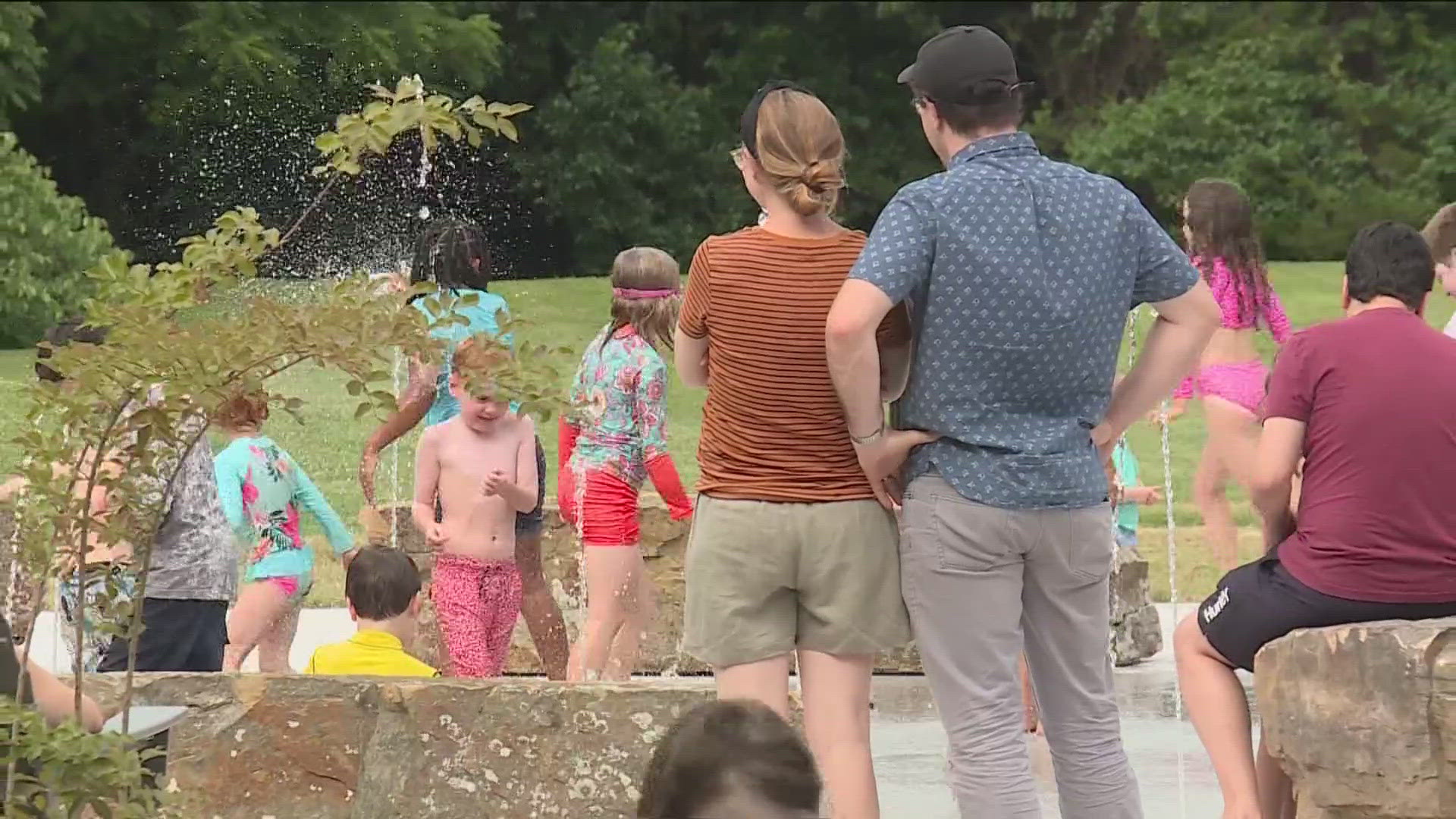FAYETTEVILLE, Ark. — Temperatures are on the rise this week in Northwest Arkansas and the River Valley. While many use this time to take advantage of the sunny weather, local emergency personnel instruct people to do so with caution.
Assistant Chief with Central EMS in Washington County Josh Kuykendall said the company has received 55 heat-related emergency calls so far this year. Last year, he said Central EMS received 215 heat-related emergency calls.
"In general, heat emergencies always go back to the same source, and that's not taking in enough fluids to meet their body's demand with the humidity and the heat," Kuykendall said.
Because of Arkansas’ relatively high humidity during the summer months, Kuykendall said the body’s ability to cool itself off is impacted.
"As the air is moving around, the sweat on the body is trying to evaporate," Kuykendall said. "If there's already quite a bit of moisture in the atmosphere around it is harder for that sweat to evaporate and aid in cooling, and so as the humidity rises, the body's own mechanisms to cool aren't going to work as well."
Kuykendall said calls can range from children overexerting themselves on a playground to workers getting heat exhaustion from manual labor. According to Kuykendall, people under the age of 15 and over the age of 45 are the most susceptible to heat-related illnesses.
Kuykendall said the three most common types of heat-related illnesses are heat cramps, heat exhaustion, and heat stroke. Here are the signs to look out for:
- Heat Cramps
- Loss of fluids and electrolytes
- Painful body cramps
- Heat Exhaustion
- Pale/grayish skin
- Body fatigue
- Heat Stroke
- Loss of sweat
- Body uses up fluid resources
- Unconsciousness
According to Kuykendall, other symptoms to look out for are thirst (signaling the body's dehydration), nausea, and vomiting.
He said preparing for outdoor activities can help keep people safe from the summer heat. He suggests:
- Drinking plenty of fluids and electrolytes
- Taking longer breaks during outdoor movement
- Limiting contact with direct sunlight
- Remaining in well-ventilated, air-conditioned rooms
- Pack umbrellas for shade
Drinking plenty of fluids and electrolytes
"Plan ahead for any of the events that they're going to participate in," Kuykendall said. "By all means, go out and enjoy the pretty weather and the beautiful day, but you have to plan ahead for these extreme temperatures."
It's important to pay attention to your pets during waves of extreme heat as well.
Before it gets too hot, Fayetteville Animal Services Superintendent Justine Lentz said taking your pets out early in the morning is the best option.
For pets who live primarily outdoors, Lentz said owners need to ensure they have access to fresh water and shaded areas in the yard.
Lentz said owners should also keep an eye on their pets' body language to gauge how they are feeling.
"Your dog's tongue may be this long, but sometimes going to be this long when they're really hot and they're just trying to cool down a lot of like pacing, or also just watching their breathing, and their respiration when they're panting super heavy," she said. "That's a big sign that they need to get a little bit cooler."
Additionally, touching the pavement before taking your pet outside can give a good indication of how hot it really is.
Watch 5NEWS on YouTube.
Download the 5NEWS app on your smartphone:
Stream 5NEWS 24/7 on the 5+ app: How to watch the 5+ app on your streaming device
To report a typo or grammatical error, please email KFSMDigitalTeam@tegna.com and detail which story you're referring to.

